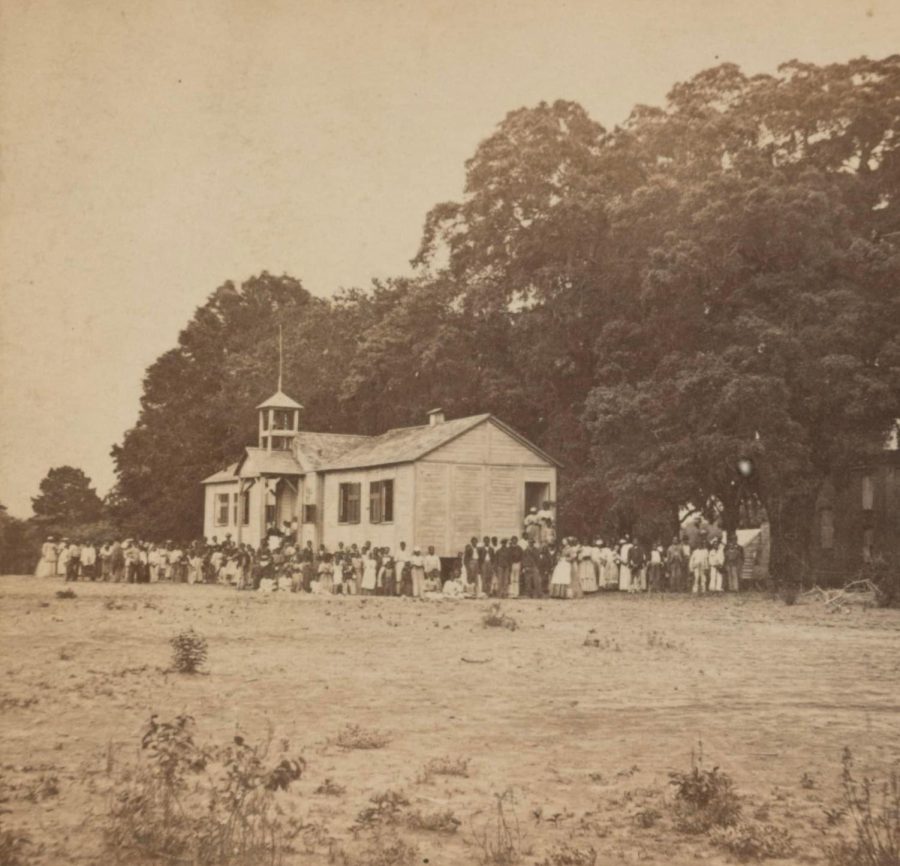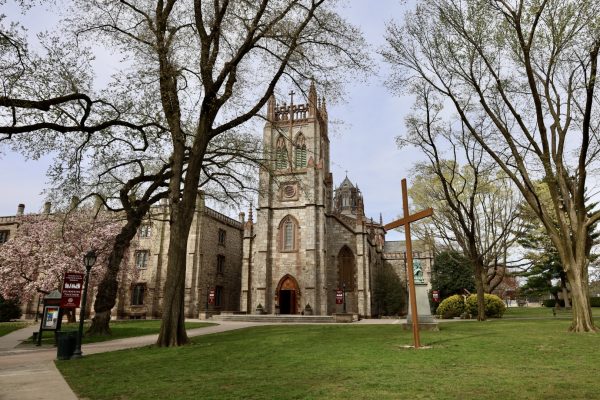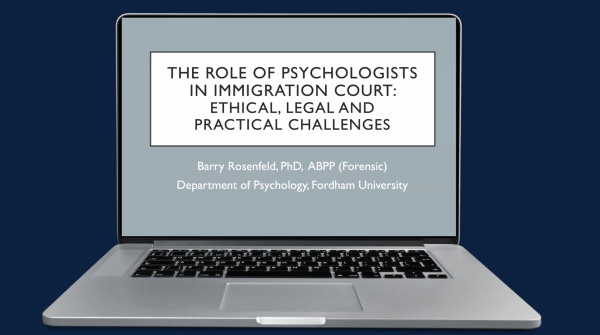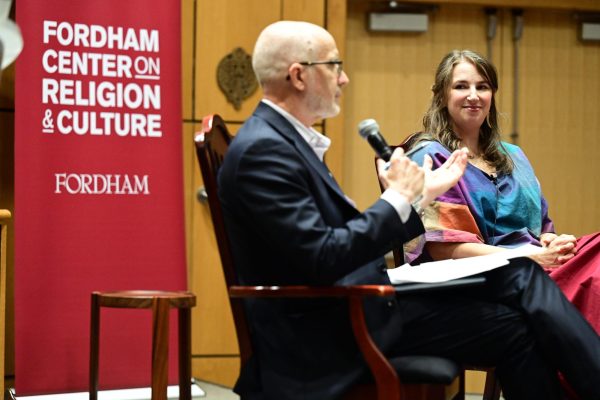Fordham Sophomore Researches Louisiana County During the Reconstruction Era
George Voelker, FCRH ’25, is an honors student majoring in history. In summer 2022, he conducted research mentored by Westenley Alcenat, Ph.D., in the Fordham history department. The work centered around a county in Louisiana known as Carol Parish during the Reconstruction Era, a period from 1863-1880 when Union troops arrived in the American South after the Civil War.
In the context of rampant white violence against Black voters and officials, Carol Parish was the one of the only parishes where Black people could vote fairly without reprisal. Voelker was interested in examining what allowed Carol Parish to evolve differently than neighboring parishes. He began his research in 1867, when Congress passed the Reconstruction Acts, disbanding Southern governments and requiring them to rewrite their constitutions to include Black suffrage. Carol Parish had a Black majority population that held power for elections.
They elected carpetbaggers, a term for rich white Northerners who came to the South, who then tried to keep Black people out of power and enrich themselves. They formed police juries, which could be described as a board of commissioners with control over the parish money. They had the power to issue warrants and bonds, and through crooked means, plundered the parish treasury. Because of this dishonesty, resistance began to grow from Black voters who wanted more representation.
In 1873, a revolt arose against the carpetbaggers and their leader George Benham. Black voters came together to write articles of denunciation. Nicholas Burton, the county sheriff, was one of the few Black men who held official power. He committed an act of resistance by firing George Benham’s brother, the deputy sheriff, and replacing him with a Black man. Voelker explains, “This was basically a declaration of war.”
Alongside these two key figures of Carol Parish, Voelker mentions a third man: Jacques Gla. Gla was a free-born Black man from New Orleans who was wealthy and educated and thus became a leader in the Black community. His ideals aligned more with the old Democratic party. The state senate election in which Benham and Gla were competing for a seat was filled with allegations of voter fraud.
While the Benham faction won in Carol Parish, the seat was determined by the votes of both Carol and Madison Parish, another majority Black parish, and Gla was able to win the senate seat by a small margin.
Voelker identifies 1875 as a defining year, in which a corruption scandal changed the course of the Carol Parish government. The parish tax collector, a white man named R.K. Anderson, collected taxes in gold currency and then paid the police jury in parish bonds, which, Voelker notes, were “practically worthless.”
Wealthy Democrats were angry and formed a taxpayer’s union. In response to this, Voelker said, “The police jury decided to make some concessions to placate them.” When the jury allowed some members of the union to go over the account books, they found information implicating Anderson and W.W. Benham — George Benham’s brother — in the theft of thousands of dollars from the government.
There was “a massive political fallout” after this discovery,” said Voelker. It was enough to fully loosen the grip of the Benham faction on parish politics. “Guilty by association,” said Voelker.
In 1878, white Democrats streamed into Black parishes in violent redemption campaigns to stop Black voters of the western Louisiana delta, also known as bulldozing. Black members of police juries were forced to resign at gunpoint. Great numbers of Black people moved to Kansas in order to escape this terrorism and violence. However, Carol Parish was largely exempt both from the bulldozing and from this exodus. In fact, by 1880 the parish reached the height of Black political power. Most of the members of the police jury were Black, as was the sheriff, justice of the peace, and constable.
Voelker argues that this is a direct result of the peace in Carol Parish. Why did these Democrats decide not to undertake a bulldozing campaign like their peers in neighboring parishes?
Voelker says it all goes back to 1867, when the first radical Reconstruction governments appeared. In the rest of the parishes, these same governments elected in the beginning of Reconstruction maintained their power — but, in Carol Parish, the shift in power from the Benham faction to the Gla faction was a crucial event. “It’s an issue of relativity,” says Voelker. “The conservative Black Republicans under Gla represented a…moderate approach that was more acceptable to the Democrats.”
Voelker, a native of New Orleans himself, spent time in the East Carol Courthouse conducting this research. He consulted lawsuits, newspaper reels and secondary source materials written about these events.
He is now engaged in publishing his work in an academic journal – his publication draft is currently undergoing internal review within the Fordham History Department.
He will also present his work at the Undergraduate Research Symposium. He plans to continue working with Alcenat in the summer of 2023, studying Black immigration to Haiti in the Antebellum period. Voelker says he continues to be interested in studying “enduring Black political independence and success in the post-Reconstruction period.”















































































































































































































